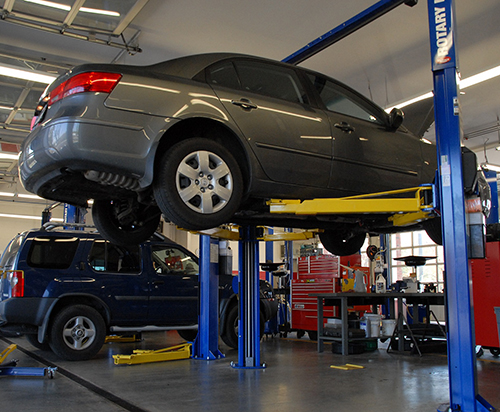Vital Car Treatment Tips to Keep Your Car in Top Condition
Key techniques such as sticking to normal oil adjustment intervals, ensuring appropriate tire upkeep, and consistently inspecting the brake system are fundamental to reliable auto care. Furthermore, keeping track of fluid levels and caring for the battery can stop expensive fixings and boost longevity. Elite Auto Care.
Regular Oil Changes
Normal oil changes are a critical facet of car upkeep that significantly impact engine efficiency and long life. Engine oil acts as a lube for various parts, decreasing rubbing and avoiding damage. In time, oil collects breaks and contaminants down, which can lead to decreased performance and potential engine damages.
It is normally recommended to alter your oil every 3,000 to 7,500 miles, relying on the car model and kind of oil utilized. Regularly inspecting the oil level and high quality can help make certain ideal engine feature. Using the proper grade of oil, as defined in the vehicle's proprietor handbook, is vital for keeping engine health and wellness.
Disregarding oil modifications can cause sludge buildup, getting too hot, and inevitably, devastating engine failing. In addition to routine oil adjustments, consider changing the oil filter at the same time to boost the oil's effectiveness and prolong engine life.
Spending in regular oil changes not just maintains vehicle performance however additionally adds to better fuel effectiveness and reduced emissions. Establishing a constant upkeep timetable with a trusted technician can help you remain on top of this essential service, ensuring your car stays in peak problem for several years ahead.
Tire Maintenance
Appropriate tire maintenance is necessary for ensuring vehicle gas, security, and performance efficiency - Elite Auto Care. Consistently examining your tire stress is crucial, as under-inflated tires can lead to increased wear and reduced gas performance. Use a trusted tire stress scale to make sure each tire is pumped up to the producer's recommended level, typically located on a sticker inside the driver's door
In addition, evaluate your tires for noticeable indications of wear, such as uneven step wear or protrudes. Turning your tires every 5,000 to 7,500 miles helps ensure even tire wear and prolongs tire life. Maintaining proper wheel positioning and equilibrium not only enhances driving convenience however also lowers unneeded tire stress.

Finally, consider seasonal adjustments; switching over to winter season tires in harsh problems can substantially improve grip and security. By adhering to these tire upkeep practices, you can boost your automobile's overall efficiency and guarantee a more secure driving experience.
Brake System Checks
Tire upkeep plays a crucial function in total automobile safety, and a just as essential part is the brake system. Routine brake system checks are vital to make sure optimal performance and safety and security while driving. The braking system includes various elements, including brake pads, rotors, calipers, and brake lines, every one of which should remain in good condition to operate efficiently.
To start, evaluate the brake pads for wear. They must be changed without delay to prevent damage to the rotors if they appear thin or used down. my website Furthermore, pay attention for any kind of uncommon sounds, such as grinding or squeaking, which may indicate a need for immediate interest.
Next, click this analyze the brake fluid level and its condition. Brake fluid takes in dampness with time, leading to decreased braking effectiveness. A flush and substitute are recommended. if the fluid shows up dark or infected.
Fluid Levels Inspection
Maintaining optimal fluid levels is essential for the reputable operation of your lorry. Routine evaluation of key liquids-- such as engine oil, coolant, brake fluid, transmission liquid, power guiding liquid, and windshield washer fluid-- is important to guarantee reliable efficiency and longevity.
Begin by inspecting the engine oil degree making use of the dipstick. Low oil levels can cause engine wear and overheating. Next, inspect the coolant degree in the storage tank; inadequate coolant can trigger getting too hot, especially throughout summertime. Brake liquid ought to be examined for clarity and appropriate levels, as it is essential for efficient stopping performance.

Battery Care and Upkeep
A trustworthy battery is essential to the total efficiency of your automobile, equally as preserving optimum fluid levels is important. Routine battery treatment and maintenance can significantly expand its life expectancy and make sure reputable begins in all problems.
First, check your battery terminals and cables for deterioration. Clean any buildup with a combination of baking soft drink and water, making sure that the connections are cost-free and limited from particles. A safe and secure connection is vital for efficient power transfer.
Following, examine the battery's liquid levels if you have a conventional lead-acid battery. Make certain that the electrolyte degrees are adequate, completing with pure water if essential.
In addition, test your battery's voltage routinely utilizing a multimeter; a healthy and balanced battery generally reads in between 12.4 and 12.7 volts. Take into consideration recharging or changing the battery. if the voltage dips listed below 12.4 volts.
Verdict
In final thought, adhering to essential vehicle treatment suggestions is crucial for keeping vehicle efficiency and durability. Regular oil adjustments, thorough tire maintenance, systematic brake system checks, complete fluid degrees evaluation, and correct battery treatment jointly contribute to a dependable and reliable automobile.
It is generally advised to change your oil every 3,000 to 7,500 miles, depending on the automobile model and kind of oil utilized.Proper tire upkeep is essential for making sure vehicle safety and security, fuel, and performance effectiveness. Turning your tires every 5,000 to 7,500 miles aids guarantee also tire wear and lengthens tire life. Brake liquid ought to be checked for useful link clarity and adequate degrees, as it is essential for reliable stopping efficiency.
